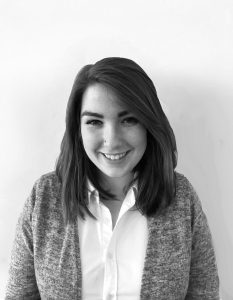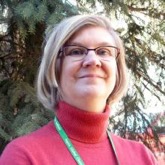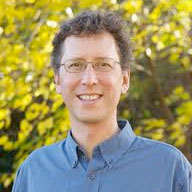New Academic Year, New Faces
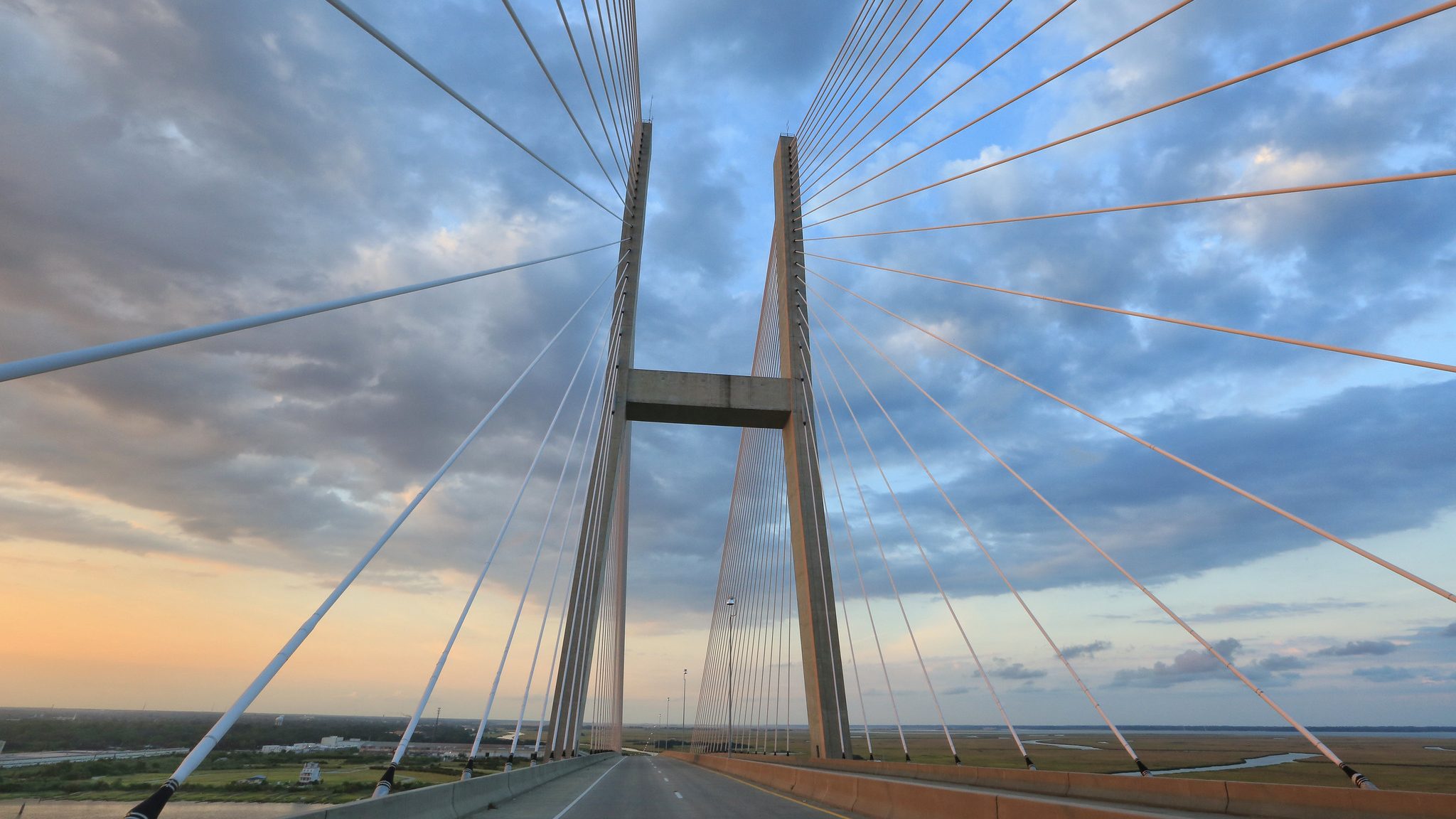
As the 2017-18 Academic Year approaches, the Southeast Climate Science Center welcomes several new faces to our community and says goodbye to some friendly faces. Over the summer we have welcomed a new University Director, a USGS Researcher, Consortium Partners, Faculty Affiliates, and a Communications Intern. We also say goodbye to Former University Director Nick Haddad.
[divider]
Get to know them
Southeast Climate Science Center Staff
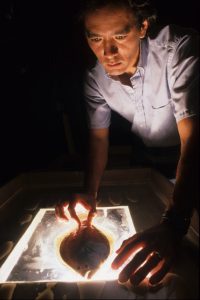
Harry Daniels
Professor, Department of Applied Ecology
University Director, North Carolina State University
Research Interests:
I have been working collaboratively with other researchers to investigate the effects of warming coastal waters on temperature-dependent sex determination (TSD) in southern flounder (Paralichthys lethostigma). Increasing water temperature causes populations of these flounder to shift toward a higher percentage of male fish. Since the female flounder grow approximately three times faster than the males and attain a much larger size, the females constitute a very high proportion of the commercial and recreational fishing harvest, which may not be sustainable for the long term viability of the fishery. Our research has focused on defining the developmental window when sex determination occurs and evaluating the sex ratios of wild populations in different nursery habitats.
[divider]

Simeon Yurek
Ecologist
Wetland and Aquatic Research Center, U.S. Geological Survey
Post Doctoral Research Scholar
Southeast Climate Science Center and South Atlantic Landscape Conservation Cooperative
Research Interests:
My research focuses on understanding and predicting linkages between water flows, management, hydrology, biomass production of fisheries, trophic transfers, and ecosystem services, under changing scenarios of sea level rise and climate. Of particular interest are spatial dynamics of flood pulsing that result in high concentrations of prey resources. I take a landscape and systems ecology approach for simulating and tracking seasonally dynamic hydrology, patterned landscape geomorphology, and movement behaviors of biota, which interact to form pulsed concentrations of prey. Scenarios are developed in computer simulations that account for different ecological, economic, and management tradeoffs and complexity. The goal of this research is to provide spatially-explicit predictions of pulsed biomass concentration and availability, which can be quantified and used in a dynamic, decision analysis framework.
I am working in a collaboration between the USGS Wetland and Aquatic Research Center, the South Atlantic Landscape Conservation Cooperative, and the Southeast Climate Science Center on spatial conservation planning.
[divider]
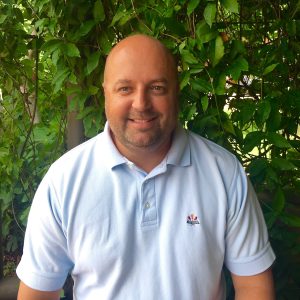 Jared Bowden
Jared Bowden
Senior Research Scholar, Department of Applied Ecology
North Carolina State University
Research interests:
My research interests are in the area of area of applied climatology and modeling in a changing environment. My research interests are at the intersection of atmospheric science and other disciplines, including hydrology, ecology, air quality, agriculture, health, engineering, business, and technology. The vision that drives my research is the need to understand, improve, and tailor regional climate change data for scientists, stakeholders, and decision makers that apply or are considering climate model data for climate adaptation or mitigation. In particular, I am interested in understanding and quantifying anthropogenic sources of uncertainty for precipitation, including changes in GHGs and land use/land cover.
[divider]
Emery Kiefer
Science Communications Intern
Southeast Climate Science Center
Research Interests:
Emery is a recent graduate of North Carolina State University with a Bachelor of Science degree in Natural Resources: Policy and Administration. She is deeply passionate about uniting climate science and decision makers through communication. During her college career, she worked with the environmental non-profit: The Climate Reality Project to co-found an international student-led campaign for 100% renewable energy on college campuses worldwide. Emery has spoken on climate communications and student power at numerous events including panels with Former Vice President Al Gore, Rocky Mountain Institute Co-founder and Chief Scientist Amory Lovins, Emmy Award Winning Documentarian Josh Fox, and others. After graduating this past May, she has begun working as a Climate Science Communications Intern in the SE CSC.
University Consortium Principal Investigators
[space height=”HEIGHT”]
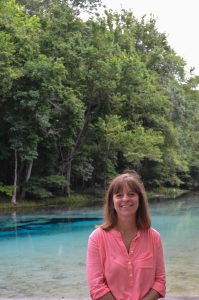 Wendy Graham
Wendy Graham
Carl S. Swisher Chair in Water Resources and Water Institute Director
Co-Principal Investigator, University of Florida
Research Interests:
Integrated hydrologic modeling; groundwater resources evaluation and remediation; evaluation of impacts of agricultural production on surface and groundwater quality; evaluation of impacts of climate variability and climate change on hydrologic systems; and stochastic modeling and data assimilation.
[divider]
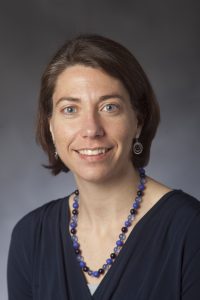
Lydia Olander
Director, Ecosystem Services Program
Nicholas Institute for Environmental Policy Solutions
Co-Principal Investigator, Duke University
Research Interests:
Lydia Olander leads the National Ecosystem Services Partnership, supporting efforts to integrate ecosystem services into decision making, and studies environmental markets and mitigation, including forestry and agricultural based climate mitigation; wetland, stream and endangered species mitigation; and water quality trading. She also serves on the U.S. Army Corps of Engineers Environmental Advisory Board and the secretariat of The Bridge Collaborative. The Collaborative aims to develop and apply approaches for enhancing cross sector research and practice – integrating environment, development and health. All of these methods, tools, and policies are useful in assessing and addressing global change in more systematic and holistic ways.
[divider]
Kirstin Dow
Professor, Department of Geography
Co-Principal Investigator, University of South Carolina
Research Interests:
Dr. Kirstin Dow is a social environmental geographer focusing on understanding climate impacts, vulnerability and adaptation. She is Professor of Geography at the University of South Carolina. She is also the principal investigator of the Carolinas Integrated Sciences and Assessments, an interdisciplinary research team that focuses on conducting decision-relevant and use-inspired research in natural and social sciences to foster enhanced climate resilience in the Carolinas. Her current research includes increasing understanding of the opportunities and challenges southeastern states faced in developing State Wildlife Action Plans and working with coastal communities as they assess threats, vulnerabilities, and adaptation options.
[divider]
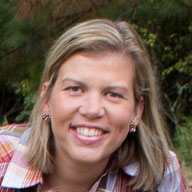
Karen McNeal
Associate Professor, Department of Geosciences
Co-Principal Investigator, Auburn University
Research interests:
My teaching/research interests are in geoscience education and geocognition where I explore questions concerning human understanding of earth systems. My current work ties together the affective and cognitive domains of learning through both qualitative and quantitative methods in the context of climate change phenomena. Specifically, I am interested in measuring participant psychomotor (e.g., eye-tracking and skin conductance) responses to climate information communicated through various pathways (e.g., static and dynamic text and visuals) in order to bring insights to best practices that attract attention and engagement, address expert-novice gaps, and provide appropriate scaffolding to support understanding among a range of audiences. I am also interested in understanding the role of participant attitude and the cultural and ideological factors that might influence how people interpret and engage with such climate change information.
[divider]
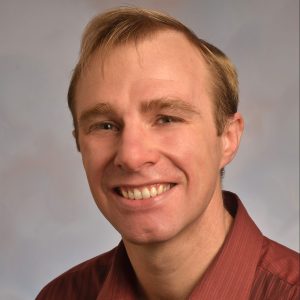
Paul Armsworth
Professor, Ecology & Evolutionary Biology
Co-Principal Investigator, University of Tennessee, Knoxville
Research Interests:
A modeler by training, Paul’s research examines how ecology and economics can be integrated to inform more effective conservation and natural resource management strategies. This work spans theoretical and empirical techniques and examines both the management of ecosystem services and biodiversity conservation. In undertaking this work, Paul’s research group collaborates closely with partners around the world drawn from public agencies, nonprofits and for profits as well as academics from a range of disciplines.
Saying Goodbye
Nick Haddad
Nick Haddad has been actively involved with the SE CSC since inception as part of the original NCSU proposal team. His research in conservation biology includes areas central to the mission of the SE CSC. He has led co-production with scientists and stakeholders in the SE CSC region, on actions for adaptation to global changes such as climate change, landscape fragmentation, and urbanization. Nick became University Director in 2016 and led development of the successful Phase 2 SE CSC proposal. With this strong groundwork and team in place, he moves on to lead the Long-term Ecological Research program at Kellogg Biological Station, Michigan State University. We are grateful for his many contributions to the SE CSC and wish him well.
- Categories:
